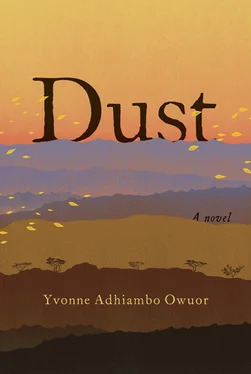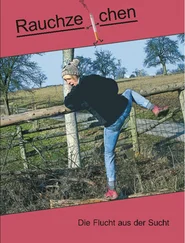They were chance offspring of northern-Kenya drylands. Growing up, Odidi and Ajany had been hemmed in by arid land geographies and essences. Freed from history, and the interference of Nairobi’s government, they had marveled at Anam Ka’alakol, the desert lake that swallowed three rivers — the Omo, Turkwel, and Kerio. They learned the memories of another river — the Ewaso Nyiro — four moody winds, the secret things of parents’ fears, throbbing shades of pasts, met assorted transient souls, and painted their existence on a massive canvas of glowing, rocky, heated earth upon which anything could and did happen. They mapped their earth with portions of wind, fire, sky, water, and nothingness, with light, piecing tales from stones, counting footsteps etched into rocks, peering into crevices to spy on the house of red rain. They lived in the absence of elders afflicted with persistent memories: no one to tell the children how it had been, what it meant, how it must be seen, or even what it was. Because of this, they re-created myths of beginnings. “The first Oganda was spoken into existence by flame,” Odidi once told Ajany. She believed him. His sister trusted everything he said. Glimmer of a smile.
“Hawa!”
He had forgotten where he was.
Odidi runs.
He jumps over mud-stained, crumpled election posters entangled in rotting foliage that show the bright face and pure-white teeth of one of the presidential candidates. Teeth do not rot in the grave . Where had he read that? To his left, a plastic-choked alleyway. He ducks into it. Song in his heart, a psalm of glee. This is his territory.
Justina!
A glance finds her among a seething mass. He knows most of them — gang associates. Justina is draped in her yellow muumuu with its ridiculous giant pink carnations. He adores that dress on her. He adores her. Her eyes are unusually large, luminous, and hollow. Her howl fragments his heart — Who has wounded her? Whom must he kill? — and then flames flare from his heart’s soul and engulf him, and after he screams out, he can no longer see Justina.
Odidi limps.
He grips his shattered right shoulder. Protrusion of bone. Blood trail. Trickle from his mouth. It is said that in the throes of battle dying men cry out for their mothers. Akai-ma , Odidi groans. She wards off ghouls and bad night entities, wrestles God, casts ancient devils into hell before their time, and kicks aside sea waves so her son will pass unhindered. Akai-ma . Throb in the back of Odidi’s left leg. Searing that eats the base of his spine. Damp from his chest. And even though his leg is heavier than a tree trunk, he tries to carry it home. He grapples with a thought that keeps sliding away. He seizes it. Justina!
The finish line. He will make it because he is Shifta the Winger, rugby finisher, and scorer. His forwards and backs have thrown him the ball. Although they have fallen out of play, they depend on him to end the game. He is the quickest, the trickiest, the best Shifta the Winger, dancing through adversaries. Before Jonah Lomu made it right to have large wingers, there was Shifta the Kenyan Winger, who carried the game into the face of opponents, and who scored try after try after try while crowds chanted Shifta! Thump, thump! Winger! Thump! Thump! And later, when he heard the Kenyan national anthem, felt it resound in his spirit, he had wept tears that traveled past his lips and reached the earth.
Shifta! Thump!
Winger! Thump!
Odidi hobbles to the center of a pathway, his twisted leg dragging. Warm liquid runs down, stains his trousers, leaving a visible patch. Piss. Out of his control. Akai-ma! She fixes everything. Retrieves those who belong to her. Dim shadows, like bateleur eagles surveying grassy plains, circle in. They herd him into a trap.
A succinct ratata .
Odidi’s good knee gives out.
He crumbles.
Exhales on a gurgle.
It is said.
That when a person begins to die, all his life races past him in spaceless time and timeless space, and he can feel again, only much faster, and with sunlike light, all he has felt before. On the tarmac, Odidi Oganda’s knuckles scrape hot stone. His left leg faces the opposite direction. A single spurt of sound becomes a blaze that cuts through Odidi’s middle, and his entire existence spirals down a hole that becomes smaller and smaller. His body jerks backward and then forward. He sighs, exhausted now, fingers folding into themselves.
Music.
A replay of Cesária Évora.
Ajany .
His sister.
Words congeal, become blocks of thought. Heart-speak. Poor ’Jany . He must warn her. Poor ’Jany . Music. Akai-ma will be mad. Flicker of laughter. She was mad. Akai-ma . Galgalu will be waiting for him. He had said he would watch the sky for signs of Odidi’s homecoming. Later, they would travel with the cows to the Chalbi Desert salts and debate life, its loves and crevices.
Music.
Cesária Évora.
Ajany.
His sister.
Once upon a time, long, long ago, when he was only four years old, Odidi, carrying Ajany, had screamed at his mother: This is my baby! She was, for he had wandered a long, long way to bring her back home, having, with Galgalu the herdsman, retrieved her from the fixed gaze of five waiting vultures.
Odidi savors the ringing.
It tastes of ordinary things.
Like presence.
He listens.
And listens.
The music stops.
No , he thinks, No, ’Jany, continue .
The drone of a million flies now buzzing in his ear. What’ll he tell his sister? He’ll say, “The land woke up at dusk and said to itself, ‘Today I’ll be Arabel Ajany. And the lake looked at the land that was Ajany and said, ‘Today I’ll be Odidi Ebewesit.’ That is why we roam. Because sometimes we are places, not people.” She would believe him. She always did. He would say …
Anonymous murmurs.
Someone moves close to him, kicks at a numbing portion of his body.
“Ameaga?” Is he dead?
“Bado.” Not yet.
They arrange objects around Odidi that ping when they fall. He squints through an overwhelming dark-red veil at the moving misshapen shapes.
Simpler needs: Help me .
Foot on his numb body.
Smaller longings: Touch me .
Minuscule hope: Stay with me .
Murmurs.
Stay . Odidi hiccups.
Ache becomes pining, every straggling breath now consecrated to presence, a single word bursting through — Baba! The sound dissolves resistance. Baba! Misery pouring out of Odidi’s mouth is the color of rotting blood. It stains his coat and T-shirt. Red tears. Streaks make his face a grotesque duo-toned mask.
Odd memory.
Old music.
Fela Kuti.
Moses Odidi Oganda was eighteen years old, a first-year University of Nairobi engineering student, when, in a room full of books and silences in his coral-hued desert home, Wuoth Ogik, he had dived into a story of machines and found, tucked into inner pages, an alien painted vision. He had ripped it from a page that age had glued it into, his breathing all of a sudden disgruntled, pained, and potholed. Before he could further contemplate what the image meant, he heard the hard tread on stone of his father’s footsteps. He had returned the piece to its mute page and walked out with the book.
Later, at university, he found Fela Kuti’s songs — their compacted rage: Aye, aye, aye … I no go agree make my brother hungry, make I no talk …
He had also appointed himself Thomas Sankara’s heir and wore nonprescription lenses shaped like those Patrice Lumumba had once worn.
Читать дальше











